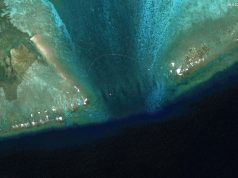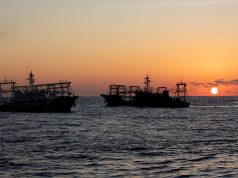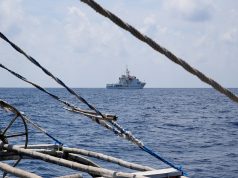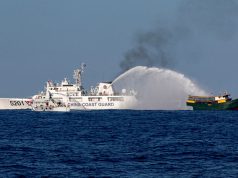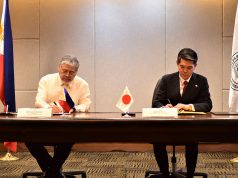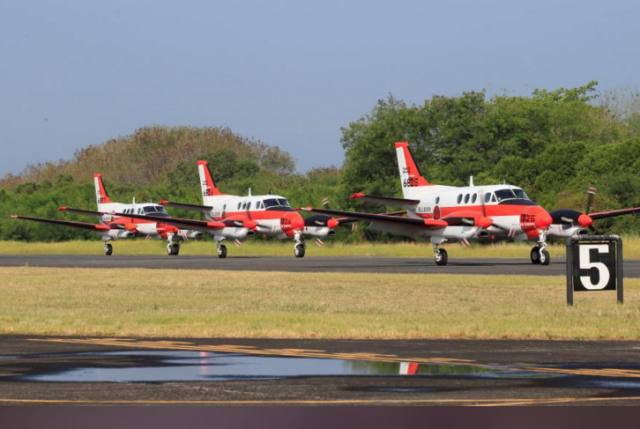
MANILA – The territorial dispute with Beijing over the South China Sea remained a security challenge despite an improvement in bilateral ties, the Philippine defense chief said on Monday as he accepted three maritime surveillance planes from Japan.
Delfin Lorenzana, in a speech at a naval base south of the capital Manila, said the three Japanese donated second-hand TC90 planes will definitely boost the navy’s capability to gather intelligence in the disputed South China Sea.
“We must admit that much still has to be done to boost our military capability equipment in order to meet a number of persistent maritime security challenges,” Lorenzana said, identifying territorial disputes with China, and other countries, over resource-rich areas in the South China Sea.
China claims almost the entire South China Sea, where about $5 trillion worth of sea-borne goods pass every year. Brunei, Malaysia, the Philippines, Taiwan and Vietnam also have conflicting claims in the strategic waterway.
Tensions between the Philippines and China over the disputed sea have eased since President Rodrigo Duterte came to power in July 2016 and improved relations with Beijing via Chinese trade and investments.
Lorenzana said the Philippines was also concerned with piracy and the movement of armed insurgents in the Sulu Sea and other transnational crimes, including smuggling of illegal drugs and poaching into rich fishing grounds in territorial waters.
Japan planned to lease five surveillance planes but decided last year to transfer without cost the aircraft after changes were made in Tokyo’s self-defense forces law allowing donation of excess defense and military equipment to partner countries.
Japan’s vice minister for defense, Tatsuo Fukuda, said Tokyo was willing to help its allies improve its capabilities help secure the safety of international sea lanes and benefit not only the Philippines but the entire region.
During the handover ceremony, Lorenzana and Fukuda watched the planes land at a naval base guarding the mouth of Manila Bay, hundreds of miles southeast of the disputed Scarborough Shoal now patrolled by Chinese coast guard ships.
The navy said the surveillance planes have a range of 300 km (186 miles), twice the capability of its existing aircraft and could patrol into China’s seven artificial islands in the Spratly, which had been converted into military bases.
The navy said it has a budget of nearly 6 billion pesos ($114.65 million) to acquire two brand new long-range maritime patrol aircraft to enhance its intelligence, surveillance and reconnaissance (ISR) capability.




